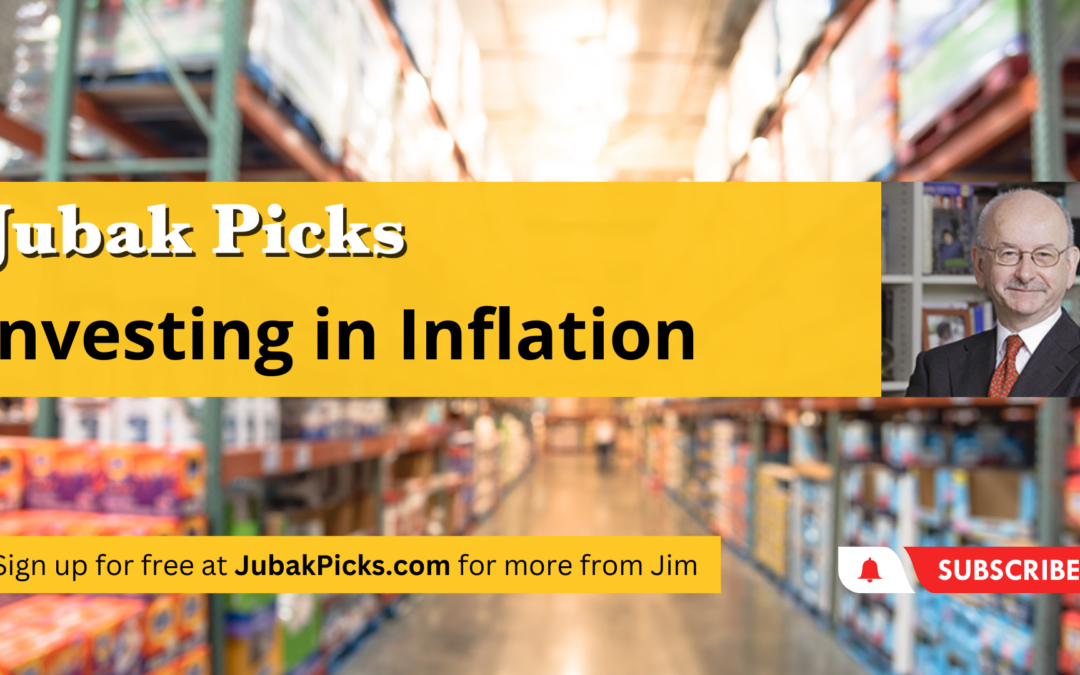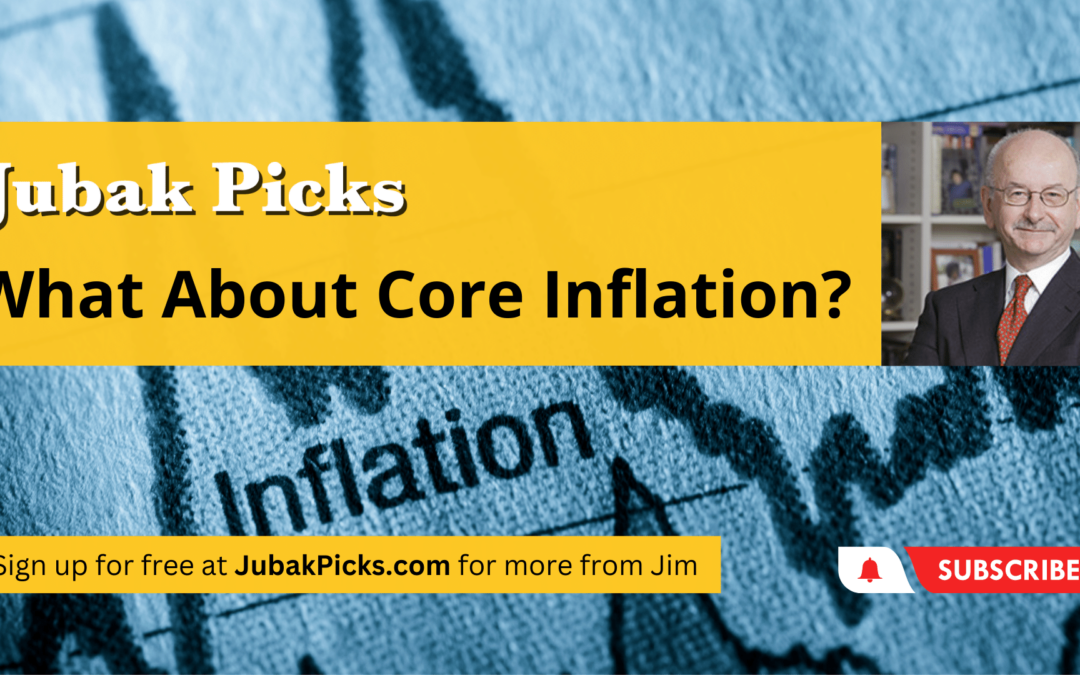
July 17, 2023 | Daily JAM, Videos |
Today’s Trend of the Week is Consumers are Skipping Essentials. The impact of high inflation has consumers moving down the price point ladder, and we’re now seeing people skip purchases for essentials. Unit purchases for essentials like toothpaste, laundry detergent and toilet paper are falling. It’s only inflation that keeps retail sales in dollars from dipping. From an investing perspective, this means there isn’t anywhere to hide. Target, which is a relatively inexpensive retailer, is reporting negative growth. Walmart and Costco are still positive, but that could change if this trend continues. In May, inflation adjusted household spending stalled and was essentially flat. Unit sales are down 3% to 4% in the 52 weeks through June 24. This is a sure sign that consumers are cutting back on spending. This all before consumer incomes take a hit with the resumption of college loan payments in October. My advice: be careful out there.

July 13, 2023 | Daily JAM, Morning Briefing |
Yesterday, the Bureau of Labor Statistics reported that all-items inflation rose at just a 3% annual rate in June. That was a huge drop from the 4% annual rate reported in May. The inflation numbers immediately prompted Wall Street to, again, declare that the Federal Reserve’s cycle of interest rate increases would end “soon.” “Soon” is now defined as after the Fed’s July 26 meeting. Fed officials have been so adamant in recent days about the need for more interest rate increases that the odds of 25 basis point increase at the July 26 meeting barely budged after the June CPI report. Today the CME FedWatch Took, which calculates the odds of a Fed move by looking at prices in the Fed Funds Futures market (and is, thus, a measure of investor sentiment rather than speculation on Fed thinking) puts the odds of a July 26 25 basis point increase at 92.4%. That’s down only slightly from the 94.2% odds before the CPI inflation report. The big move has been in the odds for a second 25 basis point increase at the Fed’s September 20 meeting. Today, the odds are just 11.1%. That’s down from 13.2% odds of a 25 basis point move in September on July 12. And down big from 27.5% odds of another interest rate increase in September on July 6. And there’s the Fed’s problem.

July 9, 2023 | Daily JAM, Morning Briefing |
Look for big news on inflation and earnings this week. But I think the news is baked into stock prices so I don’t expect much of a move on the news.

July 6, 2023 | Daily JAM, Videos |
Today’s video is Investing in Inflation. I went shopping at Costco and Target on the Saturday before July 4 and didn’t buy anything at either store.But for two very different reasons. Costco was mobbed with lines longer than I’ve ever seen and Target was nearly empty, as were many of its shelves. While Target does sell some groceries, it’s not a destination for bargain-hungry food shoppers that Costco is. Headline inflation–or “all-item” inflation–is down, but core inflation, which includes food, is still at 5.3%. That’s enough price inflation to hurt and consumers are looking to focus on saving pennies and dollars at a store like Costco. A comparison chart of Target and Costco stocks shows a huge divergence in May between the two retailers, with Costco marching steadily up, and Target diving down. I don’t expect core inflation to come down dramatically any time soon, so investing in inflation is a good bet here. Check back tomorrow for a stock play on high core inflation.

June 22, 2023 | Daily JAM, FQVLF, Mid Term |
This week’s Quick Pick is First Quantum Minerals (FQVL). I’ve talked about copper as an equity kicker in gold mining stocks in a previous video. Barrick, a huge gold producer, is also a significant copper producer and is looking to expand its copper production. The company is currently in “informal talks” with First Quantum Minerals. Year to date, First Quantum Minerals is up 21% and 34% in the last three months, so it definitely shows good short-term momentum. In the long term, copper demand will see tremendous growth in the global climate change economy, including in electric vehicle production. The other benefit here is copper and, of course, gold is a good hedge against inflation which I predict will continue higher than the Federal Reserve and consumers would like for quite some time. Put copper, with its growth potential, together with gold, with its role as an inflation hedge, in one mining stock and you’re starting to look at something good.

June 21, 2023 | Daily JAM, Videos |
Inflation deserves a bigger role in your portfolio. This vase of peonies reminds me of my first summer job: picking Japanese beetles off of my uncle’s peonies. He would offer what sounds like a not-so-generous salary of 25 cents per jar of dead beetles. But remember that’s 25 cents in 1960 or so. In thinking about inflation, I researched how much 25 cents in 1960 would be equivalent to today. 25 cents in 1960 amounts to $2.53 a jar. Still not terribly generous, but better. $100 in 1960 would be worth $1009 today, a ten-fold increase due to inflation. The Fed is still at work to stem inflation, but investors should note that there are some prices that the central bank can’t control. Inflation is built into the global climate economy with disruptions in agriculture, and new kinds of energy production (which will require higher costs), supply chain issues, not to mention that climate change is making some previously habitable places uninhabitable. All these problems will lead to extraordinary sources of inflation that are not susceptible to central bank policies. In order to hedge that inflation, make sure your portfolio, especially if it’s a long-term portfolio, has positions in things like gold or copper and lithium which will be in high demand and short supply in the next decade (at least.)

June 17, 2023 | Daily JAM, Videos |
What about core inflation? The most recent CPI numbers have been cause for market celebration. For example, here was the headline on Bloomberg: “US Inflation Slows, Giving Room for Fed to Pause Rate Hikes.” But the excitement comes from a focus solely on the headline inflation or the all-items index. The Fed, however, generally bases its decisions on core inflation, which removes energy and food prices from the equation. All item inflation dropped to a 4% annual rate in May, down from 4.9% in April, and was up just .1% month to month. This is great news for consumers as prices start to come down. The bad news is that core inflation is still pretty high, with the May annual rate at 5.3%, above economists’ hopes for 5.2%, and up .4% month to month. One of the main differences in the rate of core and all item numbers is energy. Oil prices around the world are dropping and that’s driving the decrease in the all-items inflation number. The Fed has little control over energy and food prices, which is why its decisions are generally based on core inflation. While the Fed paused rate hikes in June, those increases may not be over if core inflation continues to disappoint.

June 13, 2023 | Daily JAM, Morning Briefing |
They call it the “headline CPI” for a reason. Today all the headlines I’ve seen tout the drop in headline inflation, the all-items Consumer Price Index, in May to an annual inflation rate of 4.0%. In April the annual inflation rate was 4.9%. The month-to-month rate dropped to an increase of 0.1% from April from 0.4% in April. This is undoubtedly good news on inflation. But, beyond the headline number, the inflation picture wasn’t nearly as rosy. The core CPI, which doesn’t include changes in the prices of food and energy, rose 0.4% in May from April. The annual core inflation rate was 5.3% in May. Economists had expected a 5.2% annual core inflation rate.

June 10, 2023 | Daily JAM |
This week brings potentially market-moving doses of news on inflation and interest rates. First up, inflation. On Tuesday, June 13, the market will get the report on CPI (Consumer Price Index) inflation for May. Economists project that, because of falling gasoline prices in the month, all-items headline CPI will show just a 0.2% increase in month-to-month inflation in May and just a 4.1% year-over-year inflation rate. That would be the lowest annual inflation rate since March 2021. The core rate, however, is expected to climb at an annual 5.3%. And then on Wednesday, the Fed meets on interest rates.

May 23, 2023 | COST, Daily JAM, Morning Briefing, WMT |
More woe for the retail sector this morning BJ’s Wholesale (BJ) reported first-quarter results before the market open that missed expectations for same-store sales growth (with earnings per share matching estimates.) The big killer, though, was guidance from the company that said second-quarter comparable store sales are tracking below the 5.7% increase in the first quarter. That 5.7% growth in first-quarter comparable store sales was below the 5.9% that Wall Street analysts had expected. The stock closed today down 7.26% on the day.

May 22, 2023 | Daily JAM, Morning Briefing, Short Term |
Last week Federal Reserve chair Jerome Powell said that the Fed could hold off on another interest rate increase at its June 14 meeting. That comment wz one reason that the CME FedWath tool showed the odds of no increase at the meeting jumping to 82.6% on Friday, May 19. But today, Federal Reserve Bank of St. Louis President James Bullard and Neel Kashkari, head of the Minneapolis Fed said, essentially, that “could” doesn’t mean will. Bullard backed two more 2023 interest-rate increases and Kashkari said if the central bank pauses next month it should signal tightening isn’t over.

May 17, 2023 | Daily JAM, Morning Briefing |
Target (TGT) easily beat Wall Street earnings projections for the company’s fiscal first quarter with a report yesterday May 16 after the close with a report of $2.05 a share. Analysts were looking for $1.80 a share. Earnings were down, however, 6.2% year-over-year. But like Home Depot yesterday, Target warned that consumers are hesitant to make discretionary purchases.













